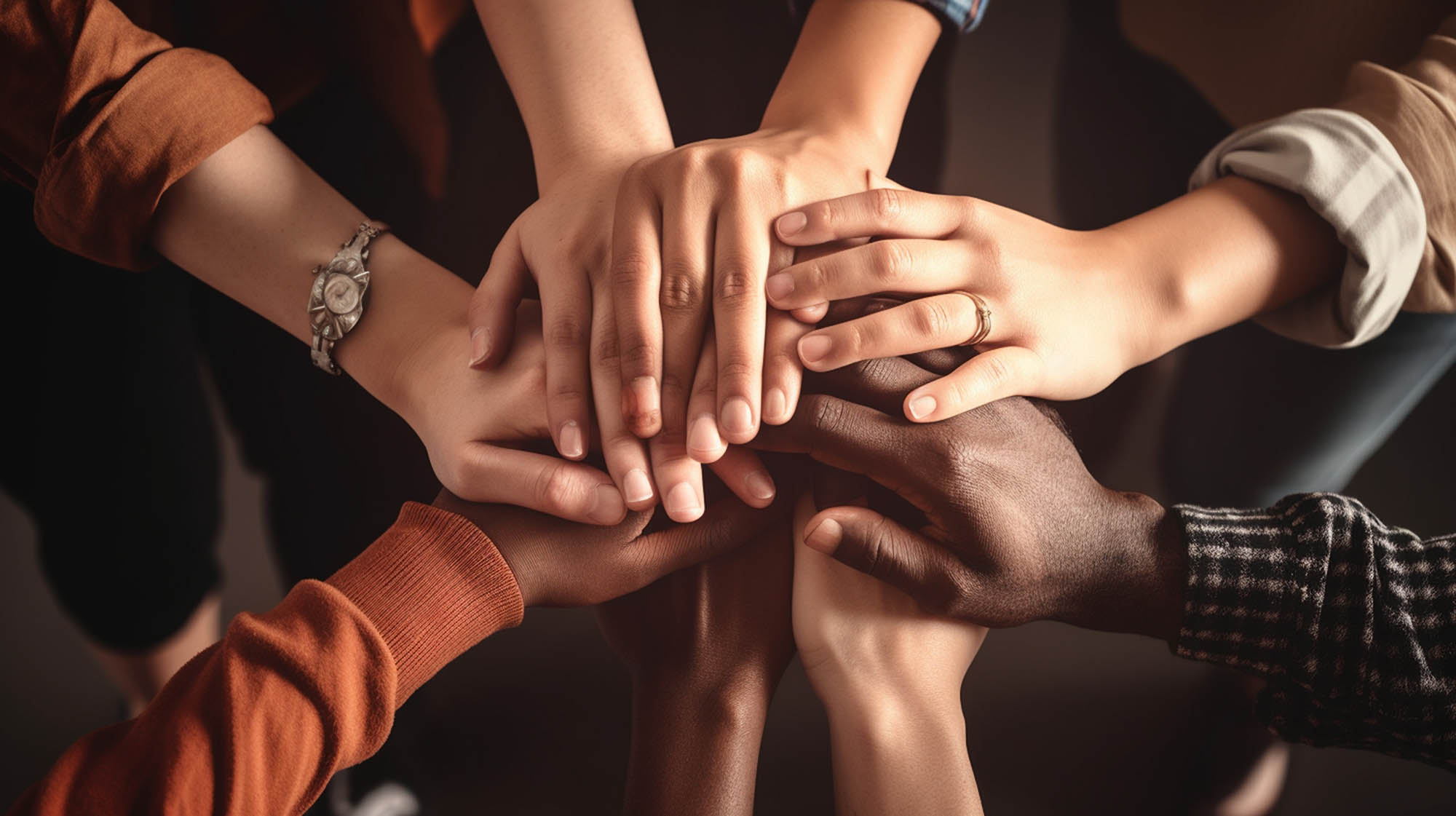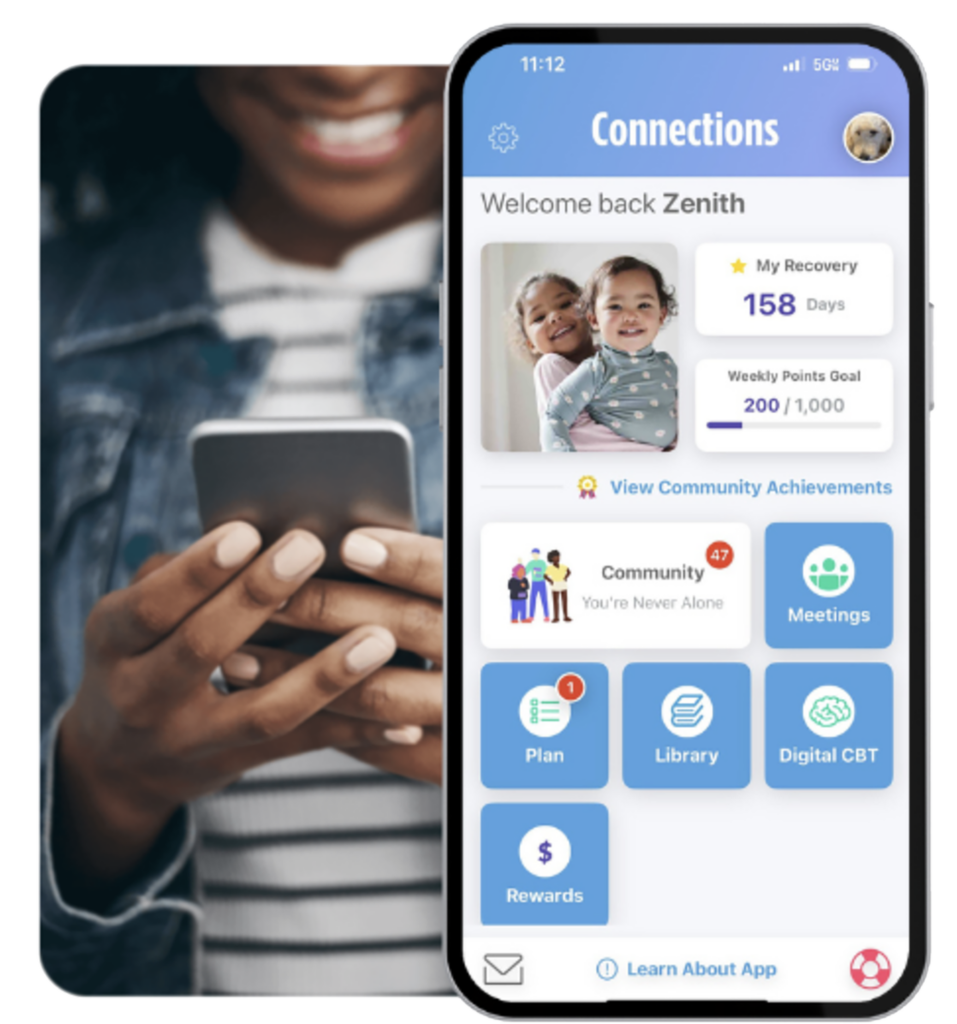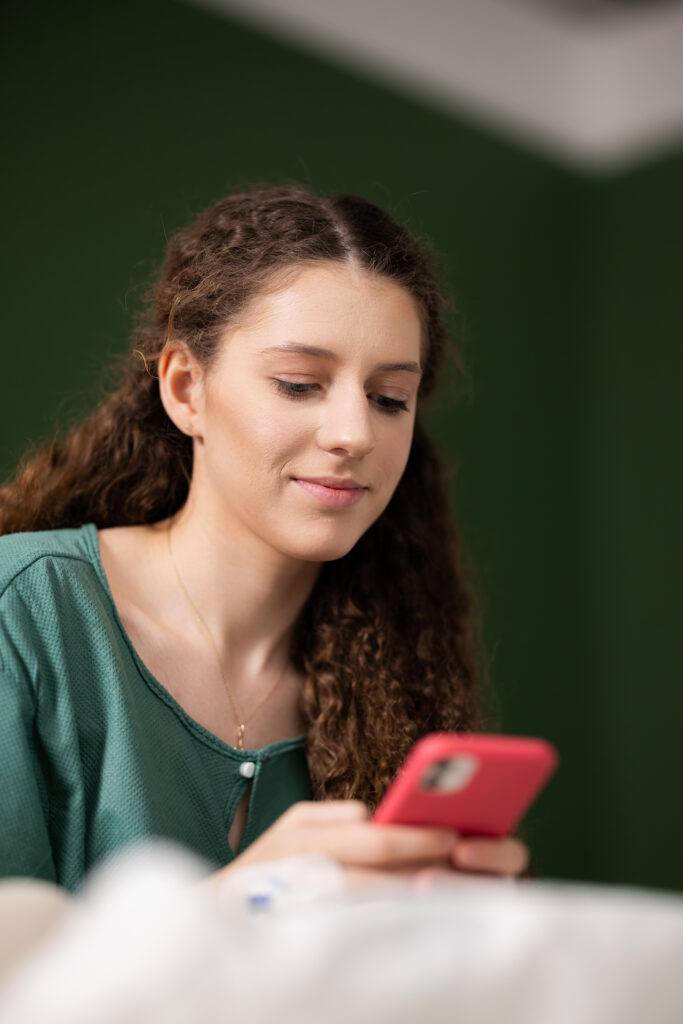To help provide people with SUD better access to treatment and recovery support, WVU Health Affairs Institute (HAI) and the West Virginia Department of Human Services (DoHS) Bureau for Behavioral Health (BBH) partnered with CHESS Health to offer the first of two mobile apps to West Virginians. Beginning in 2020, the evidence-based Connections App became available to individuals with SUD, and in late 2024, the Companion App was released for use by family, friends, and caregivers of individuals struggling with SUD. Funding for the apps is provided by the BBH State Opioid Response (SOR) grant through Substance Abuse and Mental Health Services Administration (SAMHSA).
Research poster: Assessing Psychosocial Experiences of People in Addiction Recovery Using the CHESS Connections App
 Connections App: Supporting individuals with substance use disorder in treatment and recovery
Connections App: Supporting individuals with substance use disorder in treatment and recovery
Download the app:
App Store for iPhone
Google Play for Android
Key features included in the Connections App are as follows:
- Peer Engagement Team – The Peer Engagement Team provides 24/7/365 Community moderation, initiates daily reflection, stimulates lively discussion, offers encouragement, and provides crisis support. The Peer Engagement Team includes Peer Recovery Support Specialists.
- Virtual Support Meetings – Moderated by the Peer Engagement Team, virtual support meetings are provided, to foster community and cater to individual’s specific needs, including meetings tailored to specific audiences such as those that have been incarcerated and are reentering the community.
- Digital Cognitive Based Therapy (CBT) for Recovery – Evidence based online lessons are available for learning and practicing recovery skills. The lessons are engaging and interactive.
- Analytics Dashboard (for providers only) – Dashboards are available to providers for onboarding, 1:1 and group messaging, 1:1 and group video calls, recovery monitoring, reminder tracking and content management. EHR integration is available where supported by the provider’s organization.
- Linkage to other resources available across WV, such as accessing naloxone, housing, transportation, and food banks.
 Companion App: Supporting Family, Friends, and Caregivers of Individuals with Substance Use Disorder
Companion App: Supporting Family, Friends, and Caregivers of Individuals with Substance Use Disorder
Download the app:
App Store for iPhone
Google Play for Android
The Companion App is designed to support family, friends, and caregivers of individuals struggling with SUD by providing a smartphone app with a digital community where they can connect to a supportive environment and maintain their own well-being.
Key features included in the Companion App are as follows:
- Moderated Digital Community: A safe space for companions to connect, share experiences, and seek encouragement from others going through similar challenges.
- Educational Resources: A comprehensive library that deepens understanding of SUD and mental health, empowering users to provide effective and informed support.
- Daily Reflections and Positivity Tools: Features that help companions manage their emotions and maintain a positive outlook during the recovery journey.
- Community Building: Facilitates connections among companions, fostering a network of mutual encouragement and shared experiences.
Our Goal
The goal of both the Connections and Companion Apps is to provide no cost support to West Virginians who need it, regardless of whether they are an individual with SUD or are supporting an individual with SUD.
Capabilities Applied:

Our Results
An evaluation analyzing voluntary Connections App survey (Brief Addiction Monitor) data from Jan. 1, 2023, through Dec. 31, 2024 collected from 1,040 unique individuals using the Connections App revealed:
- An SUD-focused e-intervention such as the Connections App can be implemented statewide and used to improve recovery progress.
- Brief Addiction Monitor (BAM) recovery improvement scores showed client recovery progress improved.
- Clients using the provider version of the app, where they are enrolled by and connected through the app to SUD treatment providers, tended to fare better than clients using the public version of the app, where most clients self-enroll. This was likely due to clients using the provider version of the app having a more tangible connection to their providers and SUD treatment.
- BAM scores could be used to predict substance use in the future, thus providing a useful tool for providers to gauge potential upcoming risk for their clients.
To read more evidence-based results on the Connections App, visit chess.health/evidence/

